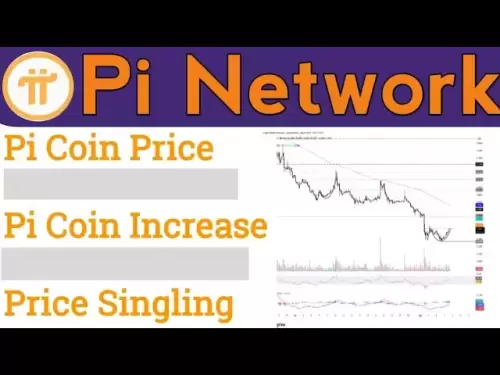BlackRock isn't jumping on the XRP ETF bandwagon, but their Bitcoin ETF success hints at a bigger crypto play. What does this mean for the future of crypto ETFs?
BlackRock and the Crypto ETF Landscape: No XRP (Yet!), But What's Next?
BlackRock's spot Bitcoin ETF success has been transformative, but they're pumping the brakes on an XRP ETF. What does this mean for the crypto ETF market?
BlackRock's Stance: Bitcoin and Ethereum First
Despite Ripple's legal victory and the buzz around XRP, BlackRock has confirmed they aren't filing for an XRP ETF or a Solana ETF anytime soon. They're sticking with Bitcoin and Ethereum for now. As BlackRock told The Block, they currently have "no plans to submit applications for either product." This news came as a surprise to many, especially after the resolution of the Ripple case, which many thought would clear the path for an XRP ETF.
Why the Hesitation on XRP?
The reasons behind BlackRock's decision are complex. Some speculate that they don't see enough U.S. demand for an XRP ETF, while others point to the regulatory uncertainties that still linger around cryptocurrencies beyond Bitcoin and Ethereum. It's also possible that BlackRock is simply playing it safe, focusing on the two largest and most established cryptocurrencies before venturing into riskier territory. They've found success with the Bitcoin ETF, so why mess with a good thing?
The ETF Landscape: A Missed Opportunity?
Nate Geraci, president of NovaDius Wealth, thinks BlackRock is making a mistake. He argues that by avoiding an XRP ETF, they're leaving the door open for competitors to dominate that category. Bloomberg Intelligence’s Eric Balchunas even questioned where ETF expansion should stop if XRP gets the green light, mentioning Solana and Tron as potential contenders. Several companies, including ProShares, 21Shares, Canary, and Bitwise, already have pending XRP ETF applications before the SEC. Will BlackRock regret sitting this one out?
The Harvard Effect: Institutional Money Floods Bitcoin ETFs
BlackRock's iShares Bitcoin Trust (IBIT) has been a huge success, amassing $84 billion in assets under management. Harvard University even committed $120 million to the fund, signaling growing confidence in Bitcoin as an asset class. This move could be a catalyst for broader institutional adoption, further solidifying Bitcoin's position in the market. The ETF structure offers security, simplified access, and regulatory alignment, making it attractive to institutions.
Altcoin ETFs on the Horizon?
With Bitcoin and Ethereum ETFs already making waves, the question is: what's next? The SEC's "Project Crypto" suggests a move towards fully onchain U.S. markets. While BlackRock isn't rushing into XRP or Solana ETFs, the success of Bitcoin and Ethereum ETFs could pave the way for other altcoins in the future. Regulatory clarity is key, but the potential for altcoin ETFs to disrupt classic crypto cycles is definitely there.
So, What Does This All Mean?
BlackRock's cautious approach to crypto ETFs highlights the ongoing tension between innovation and regulation in the crypto world. While they're not ready to embrace XRP just yet, their success with Bitcoin ETFs demonstrates the growing demand for regulated crypto investment vehicles. As the market matures and regulatory landscapes become clearer, expect to see more altcoin ETFs emerge, potentially reshaping the crypto investment landscape as we know it.
Who knows, maybe one day we'll see a Dogecoin ETF backed by Elon Musk himself. Until then, keep your eyes on the ETF approvals list – the next altcoin ETF could rewrite the rules forever!




















































































